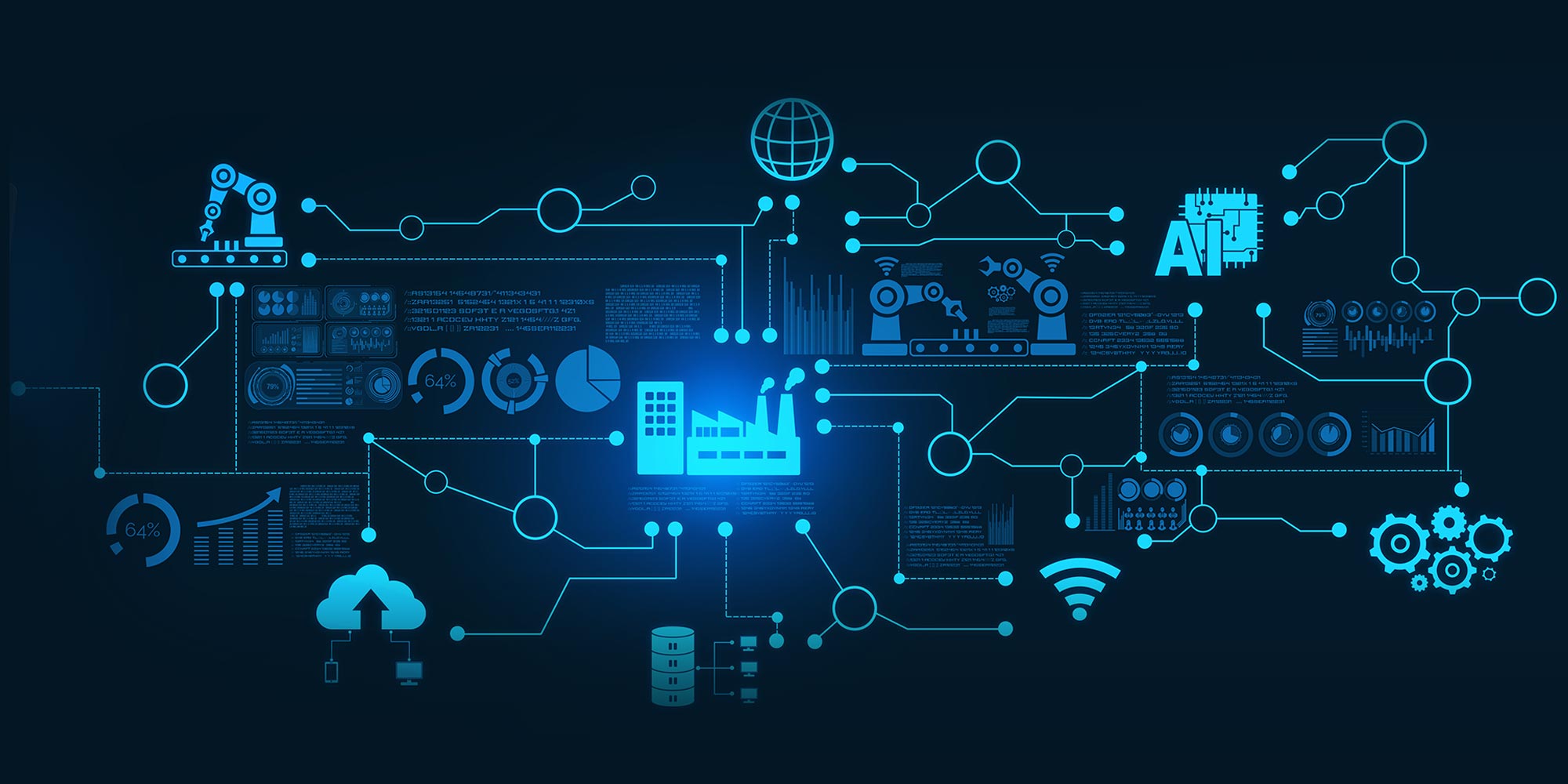
In nearly all industries, artificial intelligence (AI) is held up as the vision for the future, with the promise to transform every aspect of business. But not all hype lives up to reality. We’ve been waiting for personal jet packs for decades, and a true driverless car — which employs AI technologies — remains years away from mainstream adoption.
Intelligent process automation (IPA), however, is already transforming how businesses get work done. One analysis firm estimates the global market at $13.6 billion in 2022, a figure that’s expected to double by 2027. As IPA becomes more mainstream, companies are learning how to automate higher-level functions, building on the utility of robotic process automation tools to wring more ROI from their investment while freeing up humans for more value-added tasks.
What is Intelligent Process Automation?
Intelligent process automation is a technology solution that combines robotic process automation (RPA), AI, natural language processing (NLP), and machine learning (ML) to not only perform repetitive and routine tasks but also to become more efficient over time as it learns a particular task. Like all automation tools, IPA strives to accomplish tasks that humans usually perform. IPA can be combined with robotic process automation (RPA) and other tools to accomplish a wide range of automated tasks that users can set up once and then run on a schedule or when prescribed conditions change. Here’s how:
-
Robotic Process Automation (RPA)
RPA orchestrates the various processes that come together for intelligent process automation. RPA bots can monitor inboxes, move files, enter data into systems and applications, and process structured data. -
Artificial Intelligence (AI)
AI powers a robust classification and categorization engine to ensure rapid document processing for unstructured data. -
Natural Language Processing (NLP)
NLP also aids in the classification and organization of data extracted in an IPA workflow and can recognize more advanced information like names of people and organizations. -
Machine Learning (ML)
Unassisted ML algorithms enable automatic self-learning of previously unseen documents. This allows your IPA system to learn which document information to capture, and gets smarter and more accurate over time.
IPA goes beyond standard process or rules-based automation personified by RPA to bring deep learning and intelligence tools to the process.
What Are the Benefits of Intelligent Process Automation?
Employing IPA solutions allows businesses to automate more parts of a workflow, leaving humans free for more value-added tasks that automation can’t perform. This results in faster processes and more streamlined interactions that can bring greater efficiencies and return on investment. According to McKinsey, companies that are experimenting with IPA often experience ROI in excess of 100%. Leveraging IPA also translates into automating a greater percentage of tasks, a reduction in process time of 50%+, and run rate cost efficiencies of up to 35%.
What is the Difference Between Intelligent Process Automation and Robotic Process Automation?
Robotic process automation (RPA) leverages software robots to interact with disparate systems and applications to manage repetitive, mundane tasks that otherwise burden your busy workforce. By definition, RPA is rules-based and is ideal where a human performs specific functions or tasks in prescribed ways. RPA is also ideal for handling your structured data.
IPA provides a higher level of process automation, with the ability to tackle more complex processes. IPA is more flexible in the tasks that it performs, including those that require unstructured data and the use of judgment or analysis to complete a task. As IPA deployment continues, processes will become more efficient.
IPA encompasses RPA tools and the two can be used together for full end-to-end process automation by leveraging the strengths of each.
What is the Difference Between Intelligent Process Automation and Hyperautomation?
Hyperautomation is a strategic initiative to leverage multiple types of automation tools to automate as many processes as possible. With that in mind, intelligent process automation and hyperautomation have an interesting relationship, as they are both a part of each other. Intelligent process automation on its own is a type of hyperautomation, as it combines multiple automation technologies to automate different parts of a workflow. But also, an intelligent process automation solution can be a part of a larger hyperautomation strategy.
Learn More About Hyperautomation>
What are Some Intelligent Process Automation Examples?
Organizations handle large volumes of documents that must be collated, sorted, and routed to the appropriate department. Intelligent process automation can recognize and separate common document types (invoices, orders, forms, etc.) and not only route those to the appropriate department, but also pull out the appropriate line-item data (invoice totals, order items) for further movement and manipulation with RPA processes. Examples of this include:
Mortgage Processing in Banking
Streamline mortgage processing with intelligent automation that ensures loan applications are complete and documents are automatically uploaded into your loan origination system (LOS), decreasing the time between application and close. Read a case study >
Invoice Processing in AP
Give invoice processing a boost in your AP department by having intelligent process automation eliminate the manual sorting and classification of documents. Automatically capture and classify relevant data elements in invoices, and send it directly to your ERP or other critical applications. Download “Intelligent AP Automation: Say Goodbye to Template Building” >
Custom Declarations in Transportation and Logistics Industries
Remove the complexity from customs declarations by using intelligent process automation to get the correct information into the correct box on the correct form. Automatically capture, extract, and input data–both structured and unstructured–to and from disparate systems and applications. Read a case study >
Where Can Intelligent Process Automation Help Your Organization?
IPA can support greater productivity and efficiency on business processes nearly any place where RPA already is being deployed. IPA solutions work in conjunction to automate an increasing number of processes and higher process levels within a workflow, performing tasks that humans formerly did. Companies investigating the addition of artificial intelligence to their processes should understand that having a stable and robust RPA solution is a pre-requisite to automating higher-level workflows. Here’s what E.J. Stanley, Solutions Engineer at Fortra, has to say about the impact of IPA on an organization:
"As a Solutions Engineer deeply involved with Fortra's suite of automation products, I have observed the substantial efficiency boosts that intelligent process automation can bring to an organization. IPA extends beyond the capabilities of standard RPA by enhancing and streamlining complex workflows. It's about taking automation to a higher level, focusing on process refinement, and extracting more value from the data we handle every day.”
“With tools like Automate Intelligent Capture, we're not just performing tasks, we're optimizing how these tasks are managed and executed, leading to significant gains in productivity and accuracy. As businesses continue to navigate an increasingly data-driven world, the integration of robust process automation tools is not just beneficial, it's essential for any organization looking to enhance their operational efficiency and maintain a competitive edge.”
How To Begin Implementing IPA In Your Organization
Embarking on the journey of intelligent process automation within your organization can be transformative, paving the way for increased efficiency, reduced errors, and heightened productivity. The following are some best practices and tips from E.J. to provide you with a structured approach to initiate your IPA journey effectively.
1. Identify and Prioritize Processes
Start by identifying repetitive, rule-based tasks that consume a significant amount of your team's time. Prioritize these based on the potential return on investment. Look for processes with high transaction volumes, error-prone tasks, or those critical to business continuity. Our products are designed to seamlessly integrate and bring immediate value to these areas.
2. Define Clear Objectives
Understand what success looks like. Is it speed, accuracy, cost reduction, or all three? Setting clear, measurable goals at the outset will guide your implementation and provide a benchmark for success. Fortra's solutions are built to deliver measurable outcomes, aligning perfectly with your objectives.
3. Stakeholder Engagement
Garner support from key stakeholders by communicating the benefits of IPA. Highlight how an IPA tool set can free up valuable time for staff to focus on more strategic tasks. Successful implementation often hinges on buy-in from the top down and across teams.
4. Choose the Right Partner
Implementing IPA is not just about technology–it's about transforming your business processes. Partner with a provider like Fortra, who understands the nuances of your industry and can guide you through the transformation journey with the right set of tools–Automate for RPA, JAMS for WLA, and Automate Intelligent Capture for intelligent automation. Our extensive experience ensures that you're not just implementing a solution, but also adopting best practices in process automation.
5. Pilot and Scale
Start small. Choose a pilot project that’s likely to succeed and provide quick wins. This approach helps in demonstrating the value of IPA and gaining further buy-in. Automate, JAMS, and Automate Intelligent Capture are scalable solutions that can grow with your business needs, making them ideal for both pilot projects and enterprise-wide rollouts.
6. Continuous Learning and Adaptation
The world of IPA is ever evolving. Stay informed about the latest trends and developments. Encourage your team to continuously learn and adapt. With Fortra's solutions, you're not just getting a static product, you're getting a partnership that helps you stay at the forefront of technology.
7. Monitor, Measure, and Optimize
Implementing IPA is an ongoing journey. Regularly monitor performance against your predefined objectives. Use insights and data provided by Automate, JAMS, and Automate Intelligent Capture to refine and optimize your processes continually.
Where Do I Get Started?
Boost productivity for one department or across the enterprise with Automate from Fortra, designed to be easy to use and cost-effective to transform nearly any business or IT process.
